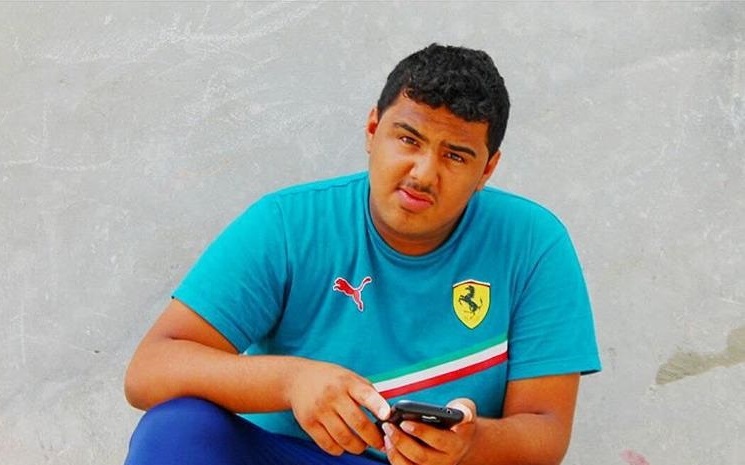Ali AbdulAziz Mohamed is a 19-year-old Bahraini student who was arrested, arbitrarily detained, tortured, and refused proper medical treatment by prison officials. In protest of the poor prison conditions, Ali went on a hunger strike in May 2019. He is currently imprisoned in New Dry Dock, the section of Jau Prison reserved for inmates under 21 years of age.
On 19 July 2017, Ministry of Interior (MoI) officers and officers in plain clothing raided Ali’s house and arrested him without producing a warrant. While Ali’s family saw the officers carried papers with Ali’s picture, the officers never shared the papers with his family or mentioned a search or arrest warrant. After arresting Ali and confiscating his identity card and wallet, the officers placed Ali in a car and beat him as they drove him to the Criminal Investigations Directorate (CID).
Ali was charged with illegally assembly and rioting, placing false explosives, manufacturing and possessing Molotov cocktails, and arson. Bahraini officials at the CID tortured Ali to coerce him to confess by blindfolding him, slapping him, and subjecting him to electric shocks. Additionally, the officers interrogated him without allowing his lawyer to be present. After enduring the torture, Ali confessed to the crimes at the Office of Public Prosecution. His coerced confession was later used against him during his trial. After detaining Ali for two weeks at the CID, the officers transferred Ali to New Dry Dock, where Ali was allowed to make a phone call for the first time since his arrest.
On 28 February 2018, the court convicted Ali and sentenced him to five years’ imprisonment. The officials did not allow Ali to contact or meet with his attorney. He only saw his attorney from afar while in court.
On 22 May 2018, the Court of Appeals upheld his sentence. Ali was unable to afford the lawyer fees required to submit a request for the Court of Cassation, Bahrain’s highest court. As such, his conviction stands and he has exhausted all domestic remedies.
In March 2019, Ali developed a skin infection in prison, which worsened over time due to a lack of treatment. He claimed that the prison officials provided him with only a very dirty pillow and bed sheet. After the prison officials refused to replace his dirty pillow and sheet with clean ones, Ali chose to sleep without a pillow or a sheet to prevent the infection from worsening.
In May 2019, prison officials transferred Ali to Salmaniya Medical Complex, where a doctor diagnosed him with scabies, prescribed medication to Ali, and requested that Ali’s sheets be replaced. When officers returned Ali to New Dry Dock, the prison provided Ali with medication, but then isolated him for 40 days and refused to provide him with clean sheets. To protest the prison’s negligence, Ali went on a hunger strike for two weeks during Ramadan and slept on the floor without a pillow or a sheet. He only stopped his hunger strike after the officers gave him new bedding.
Bahrain’s actions against Ali violate international law, including the Convention Against Torture and Other Cruel, Inhuman or Degrading Treatment or Punishment (CAT), the International Covenant on Civil and Political Rights (ICCPR), and the International Covenant on Economic, Social and Cultural Rights (ICESCR), each of which Bahrain is a party to. Articles 2 and 11 of the CAT prohibit torture and ill treatment and require State Parties to prevent torture as well as to investigate and punish its perpetrators. The use of Ali’s confession, coerced through torture, is also a violation of Article 15 of the CAT, and contributed to the unfair nature of his trial under the ICCPR. Article 14 of the ICCPR provides that all individuals are entitled to a fair trial, yet the Bahraini authorities convicted Ali in a trial that was in flagrant violation of these provisions. Additionally, the denial of proper medical treatment for Ali’s scabies violates his right to health under Article 12 of the ICESCR.
Americans for Democracy & Human Rights in Bahrain (ADHRB) calls for the immediate release of Ali AbdulAziz Mohamed. We also call for the Government of Bahrain to conduct an investigation into all allegations of torture or ill-treatment, hold perpetrators accountable, and ensure appropriate medical care is provided for all prisoners.





